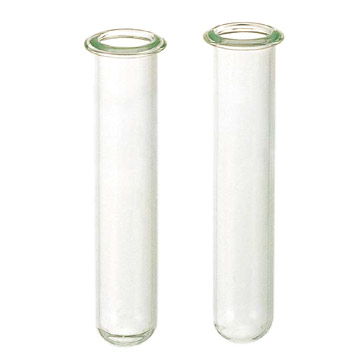Measurement and Uncertainty
Okay, sooo when you make a measurement the results usaully specify in a range of values. To show the range of values of a measurement is......
measurement = best estimate ± uncertainty
- Every estimate has some degree of uncertainty because it is only the "best" estimate, no estimate is exact
For example!
For a measurement of 6.07g ± 0.02g, it means that the "true value" is between the range of 6.05g and 6.09g.
- We can only get an exact number if we count
For example, you can see and count two test tubes in the above image. You can't have 1.75 of a test tube (unless it's broken of course, but you don't use broken test tubes!) so therefore 2 test tubes is an exact number.
Absolute Uncertainty
Absolute uncertainty is the uncertainty in a measurement which is expressed in the units of measurements.
If a measurement is 2.12 and the "true value" is 2.00, the absolute uncertainty would be 2.12 - 2.00 = 0.12.
If the mass of something is measured like 3 times with the values of 1.00g, 0.95g, and 1.05g, the absolute uncertainty would be ± 0.05g.
Method 1
When you make atleast 3 measurements, you can calculate the average. The greatest defference between the average and the highest or lowest reasonable value is the absolute uncertainty.
Method 2
When finding the uncertainty of instruments, always measure to the best precision. Estimate to a fraction of 1/10 of the smallest segment on scale of whatever instrument you're using.
For example, a ruler's smallest segment is millimeter which is 0.1cm. The uncertainty of the ruler would be 0.01 because 1/10th of 0.1 is 0.01.

Relative Uncertainty and Sig Figs
Relative Uncertainty = absolute uncertainty/estimated measurement
- It can be expressed in percentage.
- Using sig figs indicate the relative uncertanty, the last digit is uncertain.
~ ~

Hope this helped you at least a little bit!
- Melody L. =)

No comments:
Post a Comment